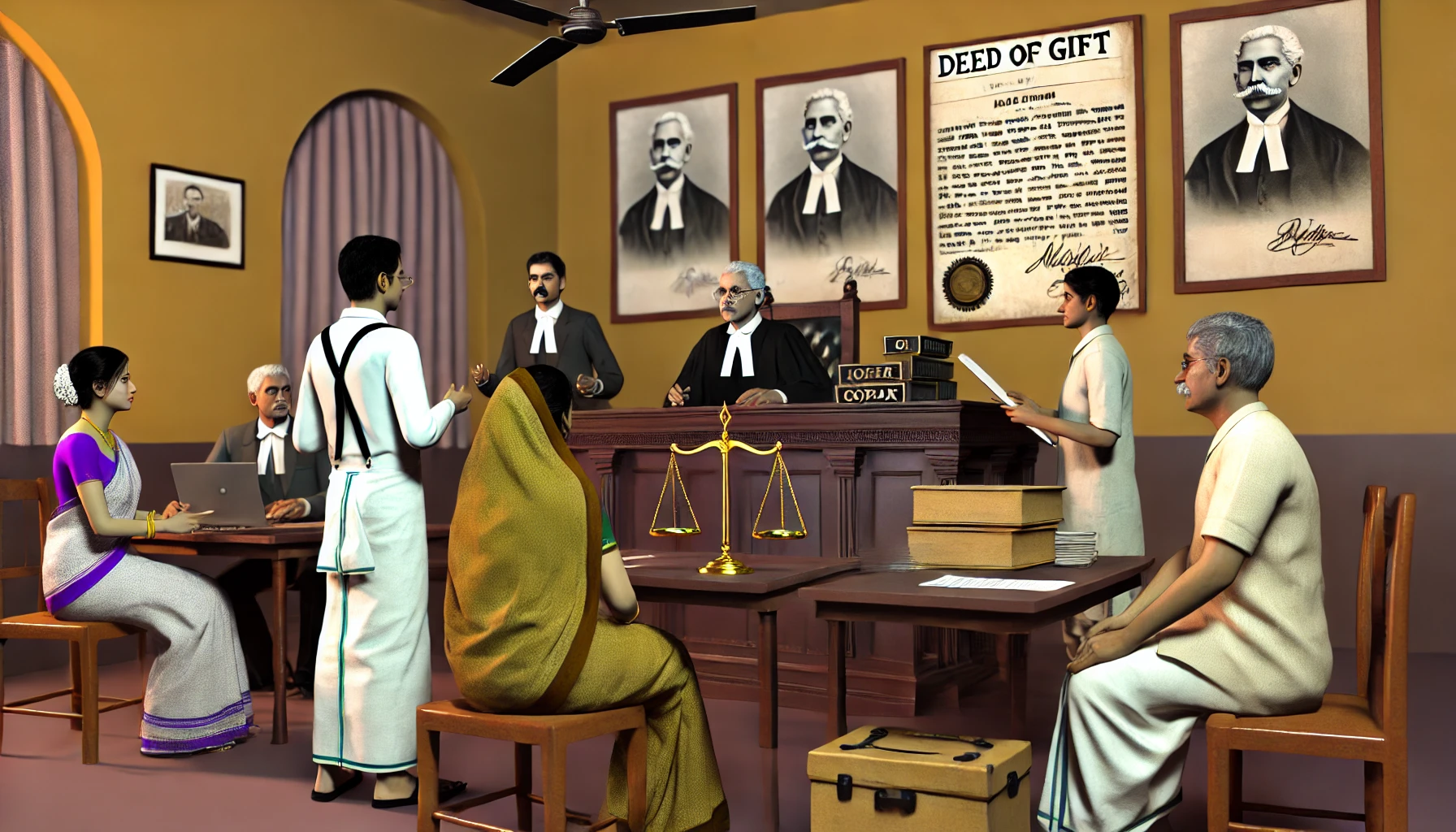Citation
(1882) ILR 4 Mad 137
Court
Madras High Court
Date of Judgment
13 December 1882
Bench
Hon’ble Justice Muttusami Ayyar, Hon’ble Justice Innes
Facts of the Case
A woman executed a deed of gift, transferring certain property to her daughter, Ramayya. The deed stipulated that Ramayya must pay an annual allowance to her mother’s brother, Chinnayya, as a condition for receiving the property.
After receiving the property, Ramayya refused to pay the allowance to Chinnayya, arguing that there was no privity of contract between them. Chinnayya sued to enforce the obligation, leading to a dispute over the enforceability of a promise made for the benefit of a third party.
Legal Issues
- Whether there was sufficient consideration to bind Ramayya to the promise made in favor of Chinnayya.
- Can a third party enforce a contract made for their benefit under Indian contract law?
Reasoning of the Court
- Privity of Contract
- The court rejected the English doctrine of privity of contract, which states that only parties to a contract can enforce its terms. It held that Indian law allows for the enforcement of contracts made for the benefit of a third party, provided the third party is a beneficiary of the agreement.
- Consideration Under Indian Law
- The court observed that consideration need not move from the promisee to be valid under Indian contract law. In this case, the consideration moved from the mother (transfer of property) to Ramayya, creating a binding obligation to pay the allowance to Chinnayya.
- Enforcement of Third-Party Rights
- The court emphasized the intent of the parties as expressed in the deed of gift, holding that Ramayya was bound to fulfill the obligation to Chinnayya.
Judgment
The Madras High Court ruled in favor of Chinnayya. It held that Ramayya was obligated to pay the allowance as stipulated in the deed of gift, as the consideration was valid and enforceable under Indian law.
Significance of the Case
- Recognition of Third-Party Beneficiaries
- The case established that Indian law allows third parties to enforce contracts made for their benefit, deviating from the strict English doctrine of privity of contract.
- Broader Definition of Consideration
- It clarified that consideration under Indian law need not move from the promisee, provided it moves from the promisor or any other person.
- Strengthening Equity
- By upholding the enforceability of third-party rights, the judgment ensured fairness and equity in contractual obligations.
Conclusion
The case of Chinnayya v. Ramayya is a landmark judgment that broadened the scope of enforceable rights under Indian contract law. It established that contracts made for the benefit of a third party are enforceable, ensuring justice and fairness in agreements involving multiple parties.

